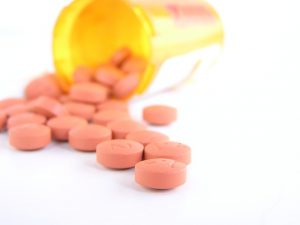Drug addiction of all kinds are a real problem—cigarettes, alcohol, heroin, and cannabis are just a few common examples of abused substances. Some people even become addicted to habits, like gambling or even eating paper. But some become unintentionally addicted to substances meant to help people—like prescription medications.
Noticing and avoiding these addictions are among the most difficult of all tasks since most people take these medications with good intentions. Once addicted, it can be easy to convince yourself that you need these drugs to stop pain or calm anxiety. Simply continuing to take and abuse them may even become second nature.
Prescription drug abuse is on a rise, with prescription overdose deaths five times higher in 2016 than in 1999. But in recent years, research has revealed more information about how to identify and deal with prescription drugs.
Recognizing the Symptoms
When the careful use of prescriptions transforms into an addiction, there are a number of behaviors and habits that can develop. This includes developing a tolerance towards the medication.
The effects of prescriptions can feel strong at first, but the more you take a medication, the weaker the effects. For prescriptions that help with issues like pain or anxiety, they may become less effective over time, tempting patients to take more than they are supposed to.
Additionally, there are physical symptoms that come with withdrawals when you stop taking the prescription. These include sleepiness, dizziness, memory loss, impaired concentration, decreased motor functions, nausea, and breathing problems.
Finally, addicts tend to isolate themselves from others; their family, friends, and co-workers, as well as ignoring obligations. This is often due to obsession over their new addiction, or even shame with a subconscious awareness of addiction.
Preventing the Addiction
Addiction to prescription drugs can sneak up on individuals, making the symptoms all the more difficult to notice. But by using prescription drugs carefully and seriously, there are plenty of ways to avoid disaster.
First, it is crucial to take these medications as prescribed—follow all directions given by your doctor to the letter. Follow instructions regarding how much and how often you should take your prescription. Increase or decrease your dosage as instructed, or be willing to stop taking your prescription when your doctor orders you.
You should also only take prescription drugs as needed. Do not take or share drugs from friends or family, as medications are prescribed individually and can have a variety of different effects. Whether it is out of good intentions or to abuse drugs, you should never take a prescription medication unless professionally instructed.
In the worst-case scenario, it may be best to seek alternative treatment. For anxiety and depression, consider therapy classes and sessions. With common illnesses, look into your options for over the counter medication. And for conditions such as insomnia, try natural aids like melatonin supplements or practicing proper bedtime routines.
What to do With an Addiction
Dealing with a prescription addiction can be a difficult revelation and may require more action than you think. Simply stopping a drug can be an easy recipe for withdrawal, making it even harder to fully escape the addiction.

If you or a loved one is struggling with addiction to prescription drugs, contact a local Treatment & Rehab alternative in Tennessee. You might be interested in Discovery Place’s own treatment center alternatives, such as our 30 Day Residential Addiction Recovery Program or our Long Term Recovery Program in Burns, Tennessee. Call us for a free consultation at 1-800-725-0922.

